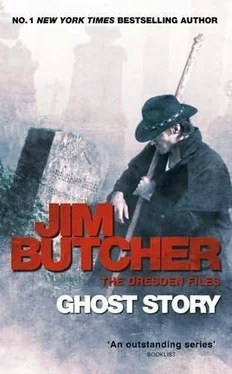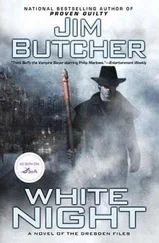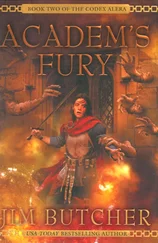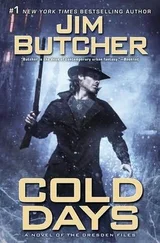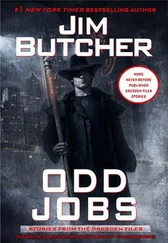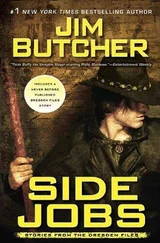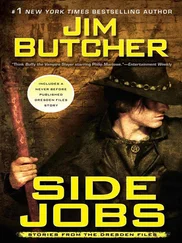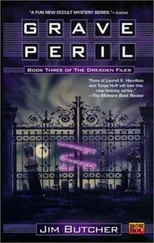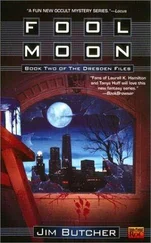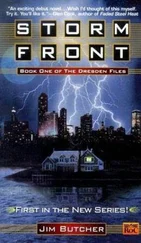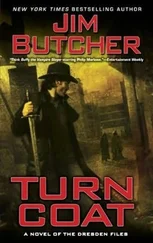Ghost Story
(Book 13 in the Dresden Files series)
A novel by Jim Butcher
To Air, for introducing me to Mab by onion-colored light
As always, there are too many people to thank and only a little bit of space to thank them in. This time around, I must especially thank my editor, Anne, for putting up with my delays in writing. I’m sure I gave her, along with several of the folks trying to schedule things at Penguin, headaches. My agent, Jenn, was invaluable in getting everything straightened out, as well as in helping me through the bumpy bits, and I owe her my thanks, as well. I would apologize to you all abjectly if I were sure it would never happen again. Seems sort of insincere to do it otherwise, all things considered, so I’ll just thank you for your patience and understanding.
To the inhabitants of the Beta Asylum, many more thanks than usual are owed, especially for everyone who sacrificed so much of their time and focus in the last few weeks before the revised deadline. Your feedback, support, and advice were particularly invaluable.
To my dear patrons, the readers, I can only thank you for your patience, after leaving the last novel the way I did, then making everyone wait another three months past the usual delay while I made sure this book was ready to go. Enjoy! (And, technically, guys, Changes did NOT end in a cliff-hanger. Seriously.)
And to Shannon, who had to live with me during this more-franticthan-usual period of insanity: I’m almost certain I’ll be sane again at some point in the reasonably near future. I’ll try to make it up to you.
Life is hard.
Dying’s easy.
So many things must align in order to create life. It has to happen in a place that supports life, something approximately as rare as hen’s teeth, from the perspective of the universe. Parents, in whatever form, have to come together for it to begin. From conception to birth, any number of hazards can end a life. And that’s to say nothing of all the attention and energy required to care for a new life until it is old enough to look after itself.
Life is full of toil, sacrifice, and pain, and from the time we stop growing, we know that we’ve begun dying. We watch helplessly as year by year, our bodies age and fail, while our survival instincts compel us to keep on going—which means living with the terrifying knowledge that ultimately death is inescapable. It takes enormous effort to create and maintain a life, and the process is full of pitfalls and unexpected complications.
Ending a life, by comparison, is simple. Easy, even. It can be done with a relatively minor effort, a single microbe, a sharp edge, a heavy weight . . . or a few ounces of lead.
So difficult to bring about. So easy to destroy.
You’d think we would hold life in greater value than we do.
I died in the water.
I don’t know if I bled to death from the gunshot wound or drowned. For being the ultimate terror of the human experience, once it’s over, the details of your death are unimportant. It isn’t scary anymore. You know that tunnel with the light at the end of it that people report in near-death experiences? Been there, done that.
Granted, I never heard of anyone rushing toward the light and suddenly hearing the howling blare of a train’s horn.
I became dimly aware that I could feel my feet beneath me, standing on what seemed to be a set of tracks. I knew because I could feel the approaching train making them shake and buzz against the bottoms of my feet. My heart sped up, too.
For crying out loud, did I just say that death isn’t scary anymore? Tell that to my glands.
I put my hands on my hips and just glared at the oncoming train in disgust. I’d had a long, long day, battling the forces of evil, utterly destroying the Red Court, rescuing my daughter, and murdering her mother—oh, and getting shot to death. That kind of thing.
I was supposed to be at peace, or merging with the holy light, or in line for my next turn on the roller coaster, or maybe burning in an oven equipped with a stereo that played nothing but Manilow. That’s what happens when you die, right? You meet your reward. You get to find out the answer to the Big Questions of life.
“You do not get run over by trains,” I said crossly. I folded my arms, planted my feet, and thrust out my jaw belligerently as the train came thundering my way.
“What’s wrong with you?” bellowed a man’s voice, and then a heavy, strong hand wrapped around my right biceps and hauled me off the track by main force. “Don’t you see the damned train?”
Said train roared by like a living thing, a furious beast that howled and wailed in disappointment as I was taken from its path. The wind of its passage raked at me with sharp, hot fingers, actually pulling my body a couple of inches toward the edge of the platform.
After a subjective eternity, it passed, and I lay on flat ground for a moment, panting, my heart beating along lickety-split. When it finally began to slow down, I took stock of my surroundings.
I was sprawled on a platform of clean but worn concrete, and suddenly found myself under fluorescent lights, as at many train stations in the Chicago area. I looked around the platform, but though it felt familiar, I couldn’t exactly place it. There were no other commuters. No flyers or other advertisements. Just an empty, clean, featureless building.
And a pair of polished wing tip shoes.
I looked up a rather modest length of cheap trousers and cheap suit and found a man of maybe thirty years looking back at me. He was built like a fireplug and managed to give the impression that if you backed a car into him, he’d dent your fender. His eyes were dark and glittered very brightly, hinting at a lively intellect, his hairline had withdrawn considerably from where it must have been at one point, and while he wasn’t exactly good-looking, it was the kind of face you could trust.
“Southbound trains are running pretty quick lately,” he said, looking down at me. “I figured you probably didn’t want to hook up with that one, mister man.”
I just stared up at him. I mentally added twenty years and forty pounds to the man standing in front of me, subtracted more hair, and realized that I knew him.
“C—” I stammered. “C-c-c—”
“Say it with me,” he said, and enunciated: “Carmichael.”
“But you’re . . . you know,” I said. “Dead.”
He snorted. “Whoa, buddy. We got us a real, gen-yoo-wine detective with us now. We got us the awesome wizardly intellect of mister man himself.” He offered me his hand, grinning, and said, “Look who’s talking, Dresden.”
I reached up, dazed, and took the hand of Sergeant Ron Carmichael, formerly of the Chicago Police Department’s Special Investigations division. He’d been Murphy’s partner. And he’d given his life to save her from a rampaging loup-garou. That had been . . . Hell’s bells, more than ten years ago. I saw him die.
Once I was standing, I stared down at him for a moment, shaking my head. I was a lot taller than he was. “You . . .” I said. “You look great.”
“Funny what being dead can do for you,” he said, widening his eyes dramatically. “And I tried Weight Watchers and everything.” He checked his watch. “This is fun and all, but we’d better get moving.”
“Uh,” I said warily, “get moving where, exactly?”
Carmichael stuck a toothpick in his mouth and drawled, “The office. Come on.”
I followed him out of the station, where an old, gold-colored Mustang was waiting. He went around to the driver’s side and got in. It was dark. It was raining. The city lights were on, but the place looked deserted except for the two of us. I still couldn’t tell exactly where in Chicago we were, which was damned odd; I know my town. I hesitated for a moment, looking around, trying to place myself by spotting the usual landmarks.
Читать дальше
